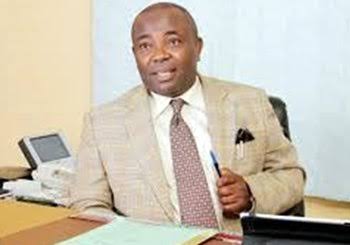Mr. Victor Muruako, Executive Chairman of the Fiscal Responsibility Commission (FRC), emphasized the importance of effective public procurement processes and fiscal responsibility as crucial elements for achieving sustainable economic growth. He made these remarks on Tuesday in Abuja during a visit from members of the Bauchi State Public Procurement Bureau, who were at the Commission for a study visit.
Represented by Muhammed Zailani, Director of Administration and Human Resources at the Commission, Muruako highlighted that fiscal responsibility fosters an improved standard of living, good governance, increased transparency, and greater public involvement in managing government finances. He noted that adhering to fiscal discipline, including judicious borrowing and promoting economic efficiency, is essential for these outcomes.
Muruako praised the Bauchi State government for recognizing the need to build on a solid foundation and for seeking training from relevant agencies to ensure effective practices. He stated that the study visit would provide insights into the operations of the Fiscal Responsibility Commission and address the critical challenges involved in establishing such a vital agency within a system that values proper governance.
“This visit comes at a time when the national economy faces significant challenges, largely due to a failure to prioritize correctly when it was most crucial,” Muruako observed. He stressed the importance of attentiveness during the visit and encouraged the visitors to ask questions as needed.
He explained that the Fiscal Responsibility Commission was created to ensure the prudent management of national resources and to maintain long-term macroeconomic stability. The Commission’s mandate includes enhancing accountability and transparency in fiscal operations within a medium-term fiscal policy framework. Its vision is to establish a robust framework for effective and transparent financial management in Nigeria, aligning with the Federal Government’s renewed hope agenda. This involves reforming public financial management through regular monitoring, thorough investigation, public reporting, and a steadfast commitment to enforcement.
Muruako also outlined the Commission’s core activities, which focus on ensuring value for money in government transactions through monitoring debts, borrowing, and managing government assets. He urged states to implement fiscal responsibility legislation and create agencies to ensure effective fiscal operations for the benefit of their citizens.
He noted that the Fiscal Responsibility Act could be adopted and domesticized by any state that chooses to do so. Muruako encouraged the Bauchi team to approach their studies with seriousness and to take full advantage of the opportunity to learn from the Commission and other agencies.
Babangida Haruna, team leader from the Bauchi State Public Procurement Bureau, mentioned that the study tour was part of the preparations for establishing a similar commission in Bauchi State. He indicated that the state had already domesticated the Fiscal Responsibility Act and was in the process of setting up its own commission, although the role of ensuring fiscal responsibility and accountability is currently managed by relevant departments within the state’s Ministry of Finance.

